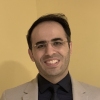Cypriots will mark the 50th anniversary of Turkey’s invasion of their island on July 20, 2024. What Turks at the time described as a humanitarian intervention to protect the Cypriot Muslim population was far more accurately an ethnic cleansing campaign with imperial overtones. History now repeats as Turkey uses supposed threats emanating from the South and West of Kurdistan, respectively in Iraq and Syria, to justify renewed military operations and demographic engineering.
The initial Turkish invasion occurred following a Greek-sponsored coup in Cyprus. At the time, the Greek junta sought to unify Greece and Cyprus. After the initial Turkish invasion established a beach head, the Greek junta collapsed, and Greece reverted to democracy. It was during subsequent peace talks and after the crisis that Turkey again invaded to seize one-third of the island, expel its Greeks, and ultimately settle the Turkish Republic of Northern Cyprus with Turks from the mainland. Turkish settlers today far outnumber native Turkish Cypriots.
President Recep Tayyip Erdoğan has embraced the Cyprus playbook established by his predecessors. In 2018, he ordered Turkish forces into several Kurdish-populated districts in Syria. Turkish forces have since ethnically cleansed Kurds from those regions, and orchestrated their replacement with thousands of Turks, Syrians, and Palestinians into the occupied areas. Qatar and Kuwait have also established in contravention of international law. Deliberate terror, such as kidnapping Kurds and destroying olive groves, keeps the ethnic cleansing ongoing.
Turkey uses occupation to create satrapies that it then molds in its own image, first to transform society, then to use false demands of self-determination to create statelets that culminate in a new Anschluss.
Turkey, meanwhile, has moved to change society in the Kurdish districts it occupies. It has introduced the Turkish curriculum in public schools, opened Turkish post offices, and even a regional campus for Gaziantep University. Turkish state symbols now dominate public spaces.
The same roadmap now appears in play for Southern Kurdistan. Following failed 2015 peace talks between Turkey and the Kurdistan Workers’ Party (Partiya krêkaren Kurdistanê, PKK), Turkey has extended its military presence in Iraq by establishing bases more than 20 miles into Kurdish territory, ostensibly to combat the PKK. Turkish drones penetrate almost 180 miles into Iraq. With over 15,000 soldiers, tanks, and other vehicles and new checkpoints, Turkey’s actions repeat the Turkification process observed in northern Cyprus.
With Iraqi government approval and tacit silence from the Kurdistan Regional Government that depends on Turkey for its trade and assistance against political rivals, Turkish forces now coerce Kurdish villagers to evacuate their homes. Repeated Turkish incursions destroy villages, burn agricultural fields, and displace the indigenous population.
A half century on, Turkey seeks international recognition of its Turkish Republic of Northern Cyprus proxy state. Azerbaijan, Kazakhstan, and Pakistan may soon grant such recognition. Meanwhile, the United States and European Union appear unable or unwilling to reverse Turkish aggression.
The question now is whether such impotence has a cost beyond Cyprus, as Turkey uses occupation to create satrapies that it then molds in its own image, first to transform society, then to use false demands of self-determination to create statelets that culminate in a new Anschluss.








